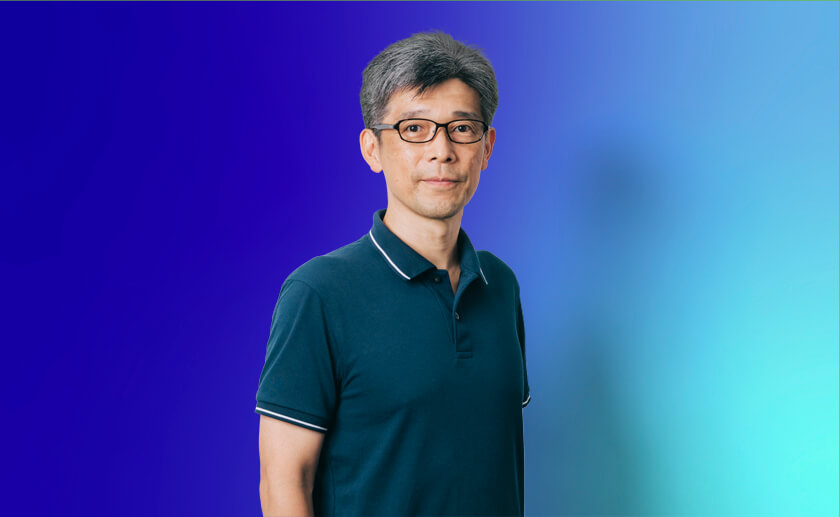Agile Data-Driven Management is leading to greater sustainability for companies and society
Fujitsu / December 9, 2021
Companies pursuing sustainable growth in a rapidly changing world must practice agile business management by using data and technology to enhance their responses to a variety of changes.
Fujitsu uses the power of digital technology to drive change with agility. As we continue to transform our operations through Data-Driven Management and Work Life Shifts to bring about workplace transformations, we’re placing our people at the heart of new ways of working in the “new normal” era. At the same time, we’re supporting corporate transformation and the way people work and live—across industry sectors and national borders—with an eye toward building a sustainable society.
Today, we interview Takahiro Fukushige from the Digital Experience Platform Business Unit, who leads the fulfillment of Data-Driven Management as a data scientist and Global Fujitsu Distinguished Engineer, on how to bring new value to society through data.
Building a sustainable society through data
- First of all, please tell us about the mission of the Digital Experience Platform Business Unit.
Takahiro Fukushige(Takahiro): Our BU’s mission statement is: “Transform the World with Intelligence & Technology.” In other words, we aim to harness the power of data by combining intelligence and technology to create innovations that can change the world, thereby contributing to the sustainable prosperity of the world.
In 2021, the Fujitsu Purpose was established as: “Making the world more sustainable by building trust in society through innovation.” To achieve this, our BU is responsible for developing solutions that lead to a sustainable society and the creation of value from a data perspective.
- What do you do specifically to contribute to economically and socially sustainable prosperity using the power of data?
Takahiro: Naturally it is important for companies to grow their businesses and generate profits through their business activities, but in addition to that, they are expected to contribute to a sustainable society, such as through ESG management. To do that, management must make sophisticated decisions by taking into consideration profitability and customer satisfaction, as well as contributing to a sustainable society, such as carbon neutrality.
So while taking a hard look at complicated and uncertain times, top executives have to optimize their way of doing business. But it is extremely difficult for them to make optimal decisions based only on their own experiences, no matter how competent they may be. What matters here is to make effective use of the data and make decisions in an agile manner with the help of AI and machine learning. As data form the foundation of such decision-making, by increasing the reliability of data, we believe we can help transform business management.
- What sort of issues can customers resolve by increasing the reliability of data?
Takahiro: I think we can solve the issue of insufficient information to come up with optimal decisions. More specifically, we can scrutinize and integrate data that exist within companies. Imagine that you have data with unknown lineage and origins. For example, it is likely that data get lost when transferred by multiple departments and employees, so you don’t know who created the data or when. One of our jobs is to trace data to identify where they originally came from. Another is to organize data including errors or defects.
Uncertainty in data can cause top executives to make the wrong decisions. So we provide solutions to turn uncertain data into reliable data.
Data-Driven Management is one such solution, which is a cycle of adding value to data, creating new experiences, adding more data and connecting that data correctly.
By integrating data scattered across the company, it can drive process transformation and the creation of new systems and value across the organization.
Take a manufacturing customer for example, if it is found that there is a problem with a product after its launch, Data-Driven Management makes it faster to link data about a defective product, thereby accelerating the speed of finding a solution that prevents similar problems from occurring in the future. Data-Driven Management should also make it possible to optimize inventories, forecast demand and detect any problems with production lines in factories.
I believe that the ability to use data in an optimal manner so management can improve quality and reduce costs will benefit customers by eventually lowering product prices.
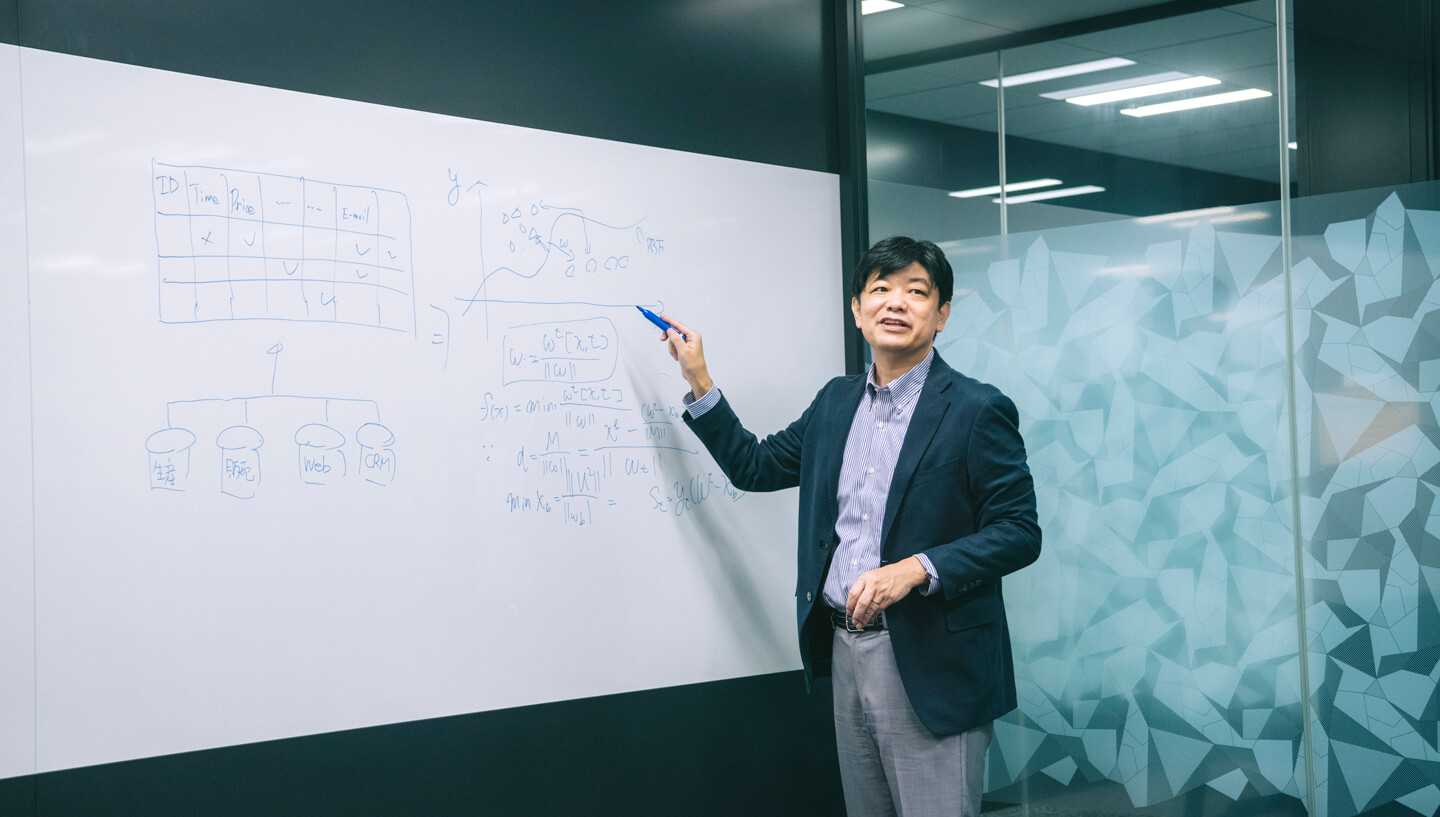
A data scientist who understands the essence of customers’ issues
- Please explain the roles data scientists play.
Takahiro: In addition to data scientists like me, the Digital Experience Platform BU has data engineers responsible for database integration and restructuring, business producers responsible for project management and consultation, and others. A total of about 300 staff members work for the organization.
Data scientists closely work with data engineers, business producers and other specialists by combining forces ranging from defining customer issues of coming up with solutions thereto.
In this process, we, as data scientists, play the role of translating data into knowledge, namely, by making effective use of statistics, machine learning and AI, to provide data in whatever form is necessary to help resolve customer issues.
Corporate data may sprawl across many departments, or have different databases established by different departments which may not be linked together. Some customers don’t know what data may be stored on respective databases according to what criteria to be met by data, or cannot remember how to access databases established more than a decade ago, which makes it very difficult for us to discover data.
Unraveling relations among data dormant within the company, putting them together and making data meaningful – this is what data scientists do.
To do that, we must deeply understand the business domain of each customer. We are not only familiar with professional terms but also understand the environment surrounding the industry the customer is in, grasp the essence of the customer’s issue and make proposals one step ahead of the customer. This is what data scientists are required to perform.
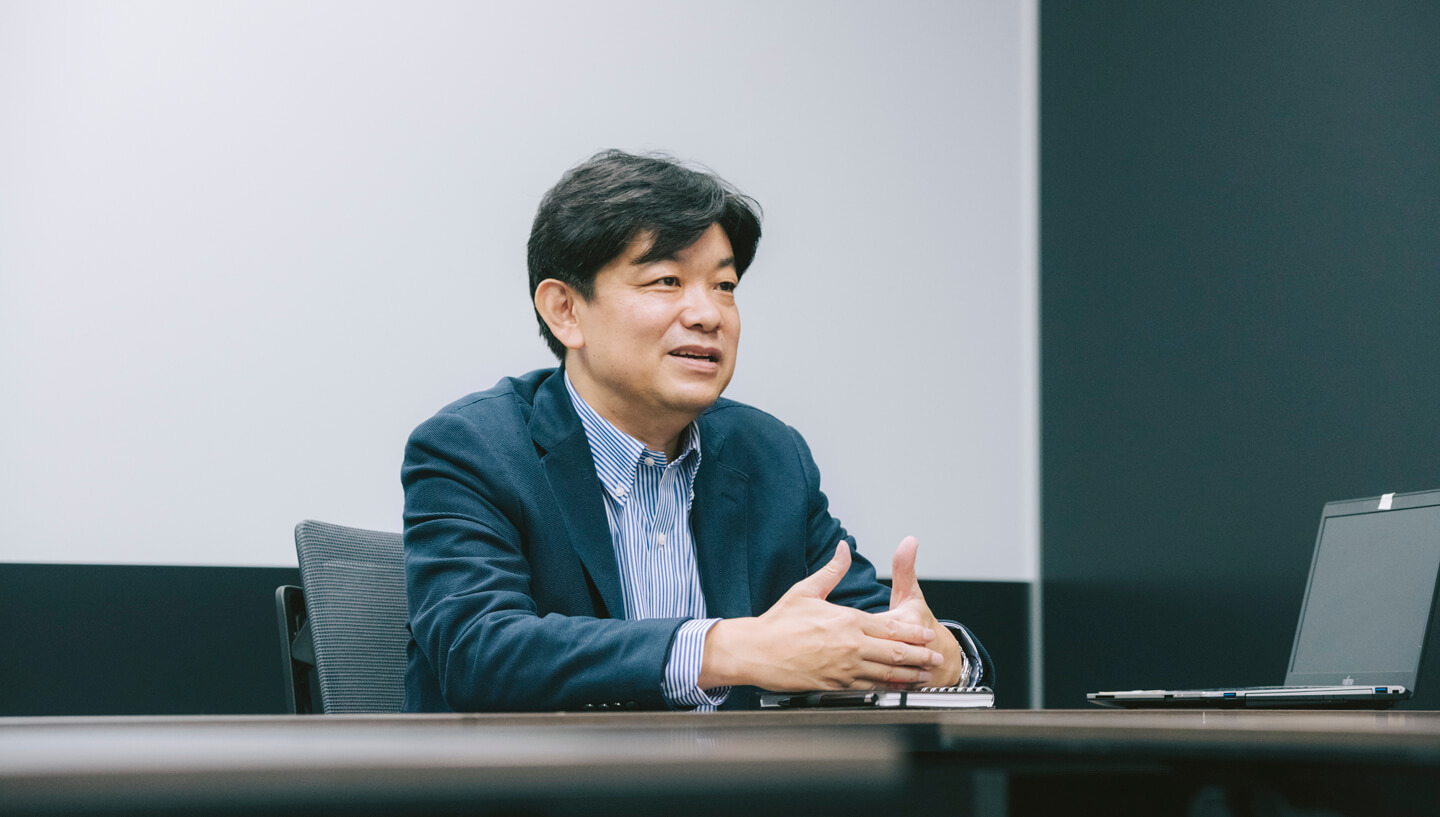
- Please share specific projects you’re working on.
Takahiro: We are going forward with a project of putting in-house Data-Driven Management into practice to manage parts and components to repairs and maintenance of hardware, such as servers. If one of our servers has a problem, we need to quickly deliver necessary parts/components from a parts center in Japan to a customer making an inquiry about their system trouble, within a certain period of time upon receipt of the customer’s inquiry.
Before the project was launched, there had been no integration between data about repairs and maintenance management, including the number of parts/components stored by each parts center and the number of purchase orders received by the center, and data about sales, including contracts with customers. So, even though we received an inquiry from a customer in Osaka to send some parts, the parts were only available at a Tokyo parts center, requiring us to make a long-distance shipment of the parts, resulting in higher costs; such cases had occurred very often.
Data connection is required to not only provide quick support for customers but also visualize inventory information and streamline warehouse management. In this project, we, the data scientists, and data engineers worked together to integrate siloed data into one.
More specifically, we integrated sales information and repairs and maintenance management information to visualize sales contribution by warehouse. Connecting data led to solutions to the issues by reducing the number of long-distance shipments and optimizing operations of parts centers. Cost reductions and the ability of business planning were significant in operational transformation.
We have another project underway that we are considering such services by analyzing data collected, stored and visualized via Fujitsu’s product lifestyle management (PLM) / smart factory solution “COLMINA” and classifying issues about onsite manufacturing data into several types, thereby quickly delivering further value to customers.
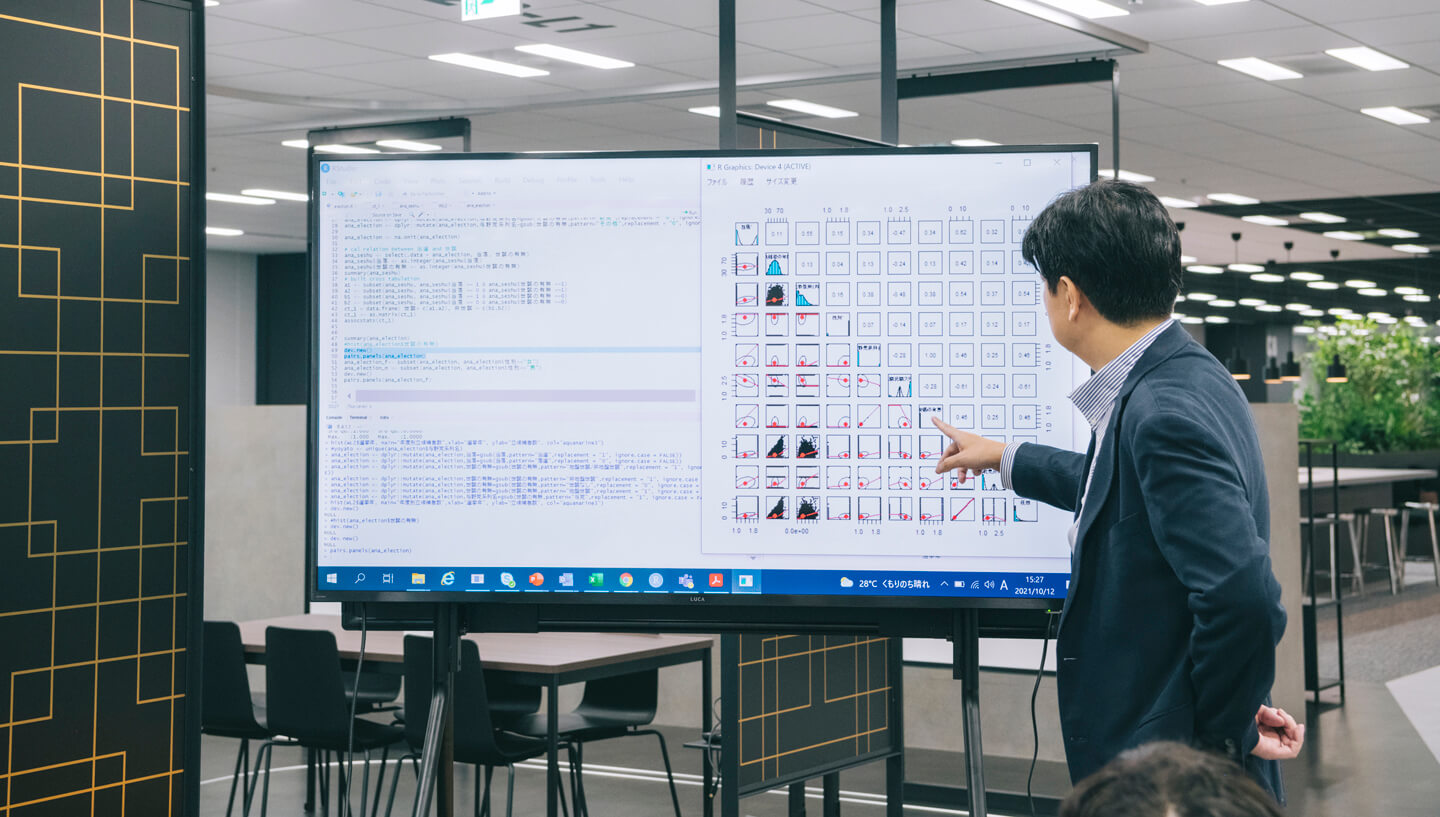
Using technology to support Data-Driven Management
- In transforming organizations and society with the power of digital, what are some of Fujitsu’s unique strengths?
Takahiro: I think that our primary strengths are not only organizing issues for customers but also using technology to provide means of solutions to the issues. Fujitsu has a research center where an array of world-class researchers in the fields of AI and machine learning are working on developing technologies aligned for solving customer issues, which represents another strength Fujitsu has to offer.
We, data scientists, also translate data into numerical formulas, which we call modeling, so that we customize and provide them in such manners suitable for solving the issues of the customers; we would like to automate this process as much as possible by using technology to free up the time spent on the upstream part of the process.
I also believe that we can find solutions to our own operating issues through our proprietary technology to reduce our time to work, leading to quick solutions to customer issues.
- How do you think promoting data use would change society?
Takahiro: I think that the roles data have to play in the economy and society are critically important. In financial services, electricity and water supply and other infrastructure domains, the range of data use is continuing to be broadened. Getting things under better control based on data should further reduce environmental burden. I believe that making such strenuous efforts would make people’s ways of life better and more convenient, thereby reducing the number of things they may find inconvenient or cumbersome in their daily lives in the future.
If more companies adopt Data-Driven Management to promote digital transformation (DX) and can link it with solutions to social issues, then it should help rectify the digital divide (interregional information gaps) according to where they reside and information received.
Creating a circle of happiness by using data
- You joined Fujitsu in February 2021 as a data scientist, but you’re also involved in staff training on the topic of data science. What made you choose Fujitsu?
Takahiro: After graduating university, I have been involved in fundamental technology research about cars and aircraft, developing power plants and so on.
Continuing to go digital in a variety of simulations has made data science elements increasingly important. Through my experiences in processing a huge amount of data collected in the right way to make data meaningful, I acquired knowledge and skills about data science.
This then made me increasingly curious about handling more diverse data.
I was attracted to Fujitsu handling customer data across all sorts of industry sectors, where I could be devoted to developing a wide variety of solutions based on data. Fujitsu also has affiliated companies handling data, so that by making effective use of data, I could be part of the company to help not only solve customer issues but also create new businesses that can provide value for people. This is what made me decide to join Fujitsu.
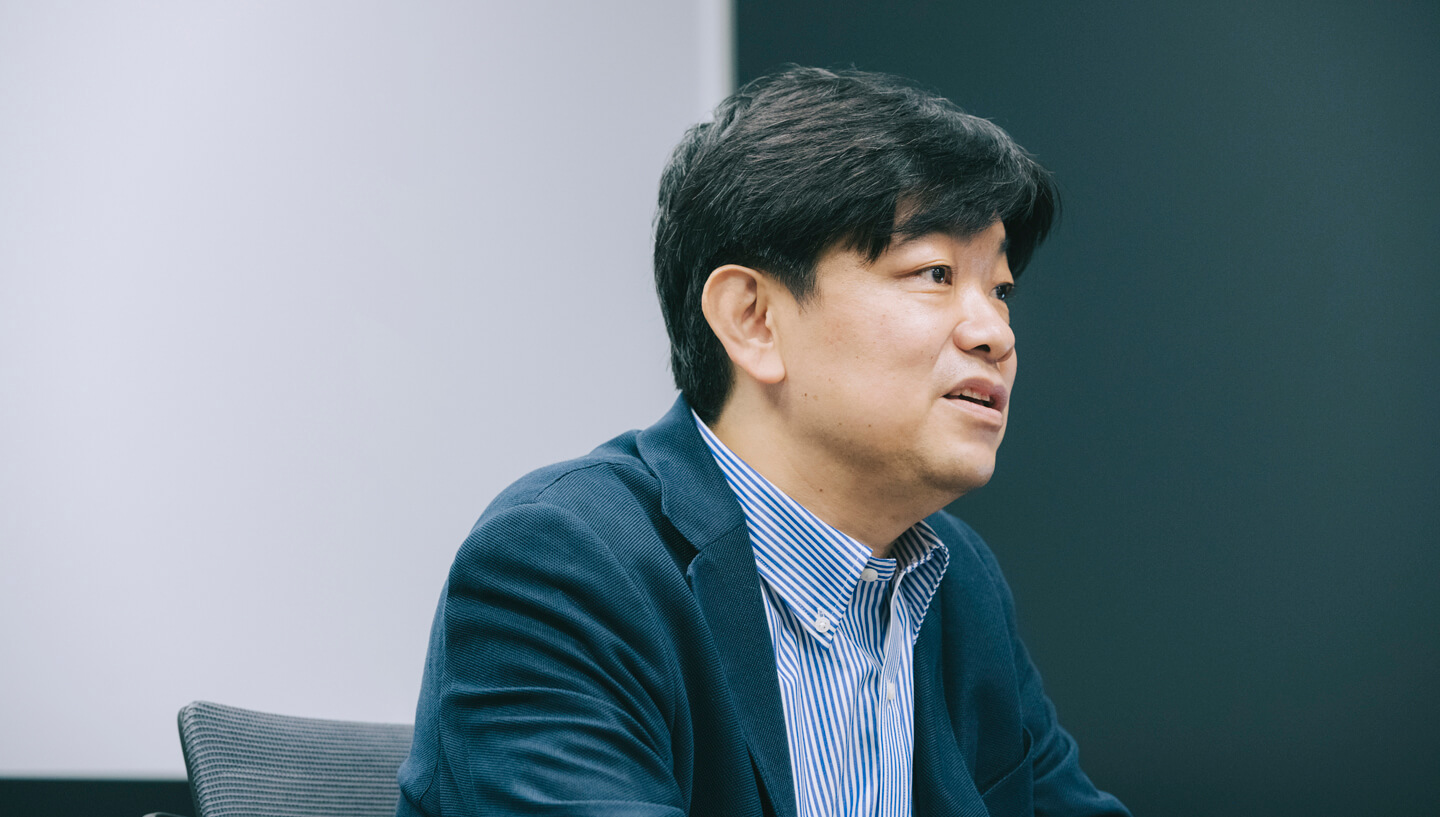
- What types of businesses are you considering?
Takahiro: The Fujitsu Group has a member company called Fujitsu General Limited manufacturing air conditioners. Recent product models with on-board AI in can collect data from air conditioners. For example, I am exploring ideas about how we can use such data to suppress the peak levels of power consumption.
If we can automatically control air conditioners without making people feel uncomfortable, it would benefit power companies and should sooner or later benefit people, too. Fujitsu systems are also responsible for managing operations of trucks and buses; I was also wondering if we could optimize their transportation routes by using such data.
- I had an impression that the work of data scientists is to sit at a desk analyzing data, but what you’re describing is very creative.
Takahiro: That’s true. In my opinion, people with creative desires and strong curiosity can certainly become data scientists.
As one more attribute, I would like data scientists at Fujitsu to have two or more titles. For example, I would introduce as a person familiar with power plant, car and aircraft engineering.
If you build your career as a data scientist to the extent of acquiring professional knowledge about each of the industry sectors your customers are in and of being able to talk with consultants and decision-making executives, this should increase the range of your work and job opportunities. I would like to train my staff to become such data scientists.
- In closing the interview, please share your own purpose with me.
Takahiro: My purpose is to “have many people feel happy” at the end of the day.
I want company workers and engineers to make their work more efficient and enjoyable and product users to feel comfortable in life. I would like to work to support the world which creates a circle of happiness by using data. This should lead to sustainability of society. My desire shares commonality with the Fujitsu Purpose. I am proud to work for this company.
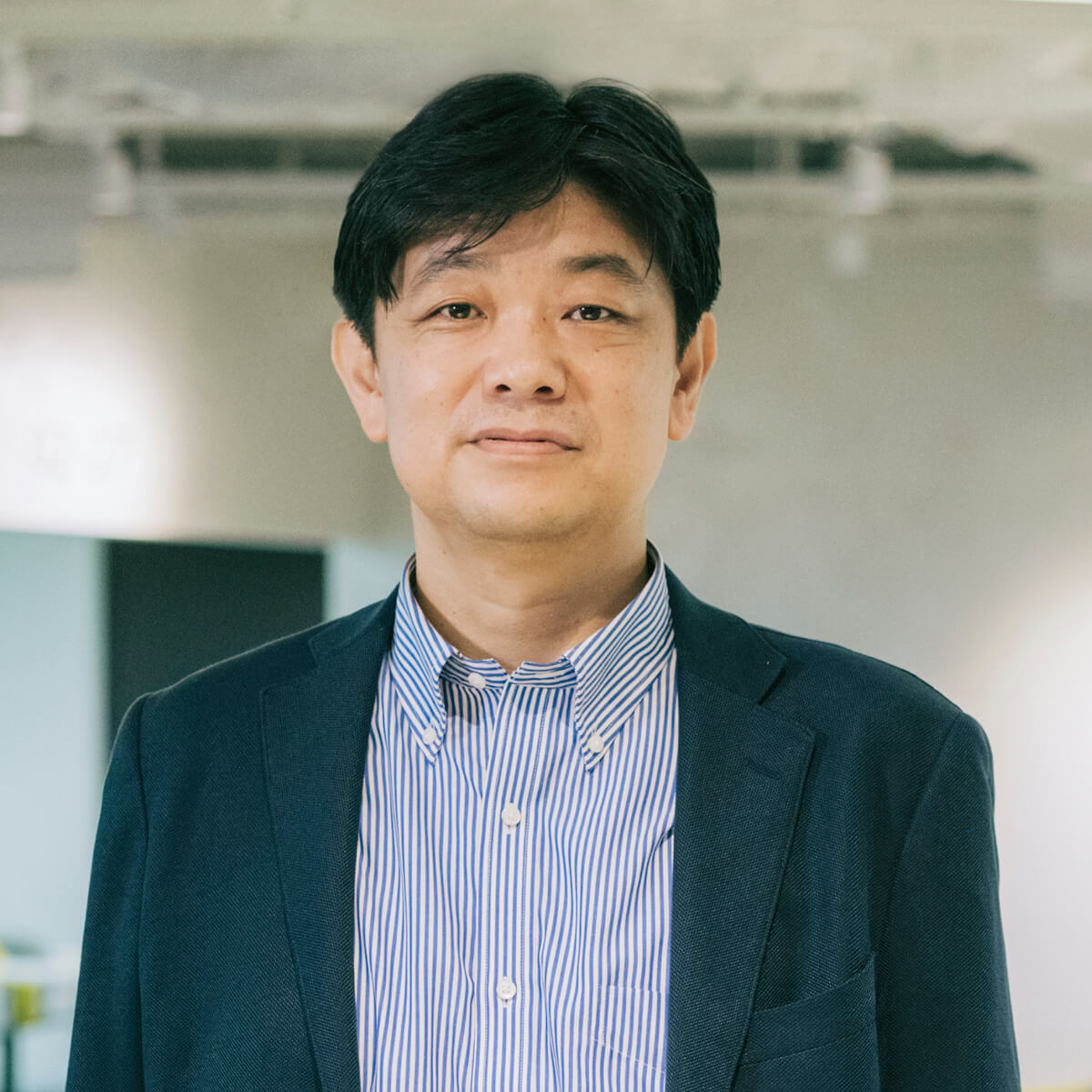
Editor's Picks




